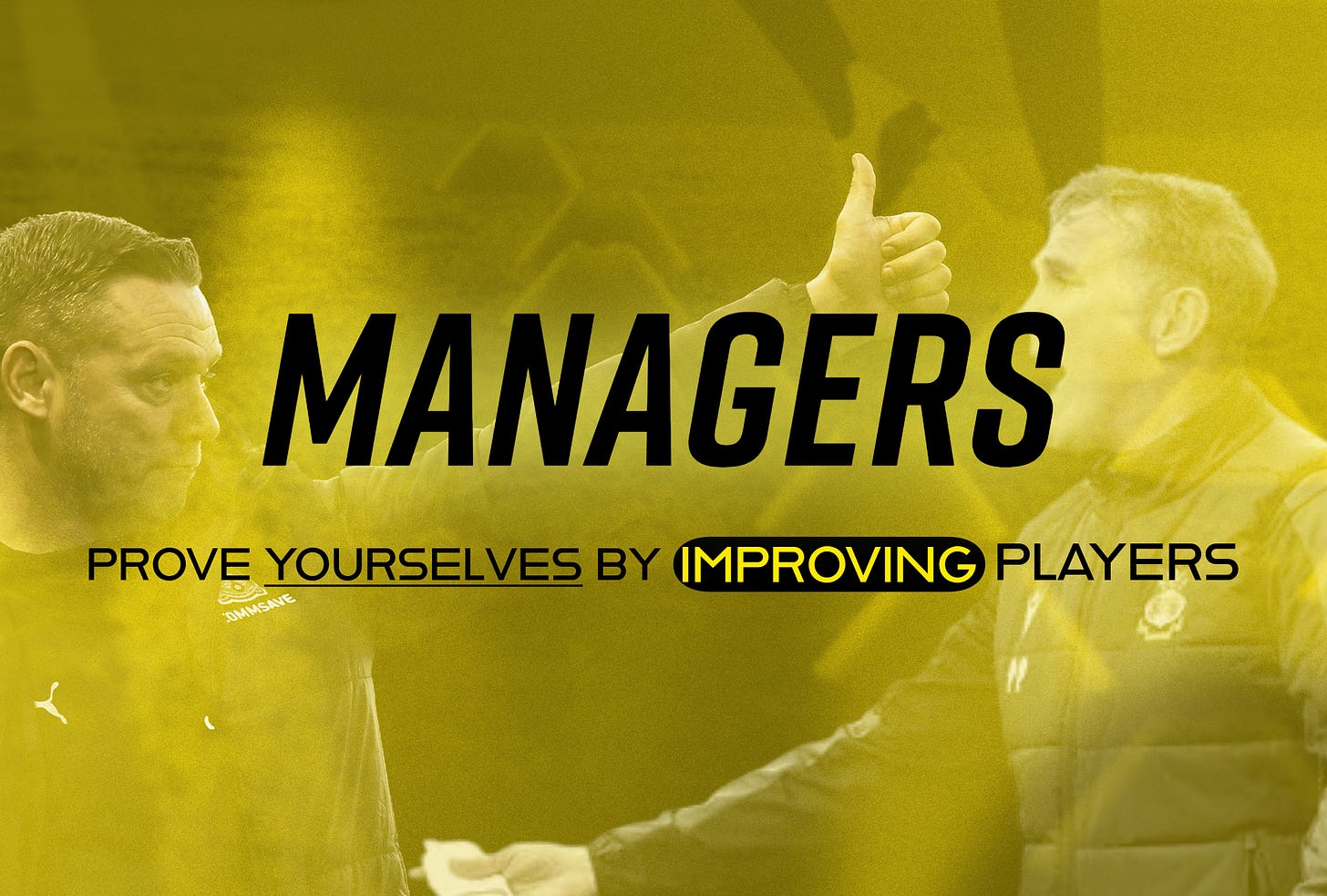Managers: prove yourselves by improving players
EFL clubs are signing a whole new XI every single summer, when the solutions they seek might be in the building already
Until recently, I would’ve considered a standard number of signings for a club each summer to be around 7 or 8. Many would limbo under that bar, I might’ve assumed, because when you’re getting to double figures it suggests a club in a state of transition, flux, revolution or even crisis.
I will never tire of being wrong.
During this window of NTT20.COM’s twice-weekly transfer bulletins, I kept track of how many players each team was signing. I was staggered by the numbers. Staggered, I say. There were 815 incoming transfers in all, or 11.3 per club, and in fact the vast majority of clubs did sign 11 or more players: 49 of the EFL’s 72, to be exact, with 59/72 bringing in at least 10.
What is this madness? Why are most clubs signing, in effect, an entirely new XI each year – or even twice per year? Tweaks and improvements are one thing (well, two things) but it feels excessive to acquire a full team of new faces just as a matter of course.
Being lazy, my natural reaction is to pontificate vaguely about modern football’s transfer frenzies and fans who favour ‘winning the window’ over winning a match. There’s no shortage of discussions on that cultural front, though. I want to know if such churn is really necessary, and to celebrate the managers who seek solutions in what they have.
In late 2016, hardly a short time ago, 21st Club (now Twenty First Group) published a collection of articles in a book called Changing The Conversation. One chapter suggested that clubs lining up a last-minute transfer first ask themselves several specific questions, including, “Do we already have a player with a similar profile at the club, whether on the fringes of the first team or even in the academy?” The chapter concluded with this, slightly abridged:
“It’s natural to desire things we don’t have. Managers understandably want to bring in tried-and-tested players rather than promoting a less experienced talent from within, given the pressure to deliver immediate success. But there’s a contradiction here, in that managers often express the concern that new players need more time to settle in.
“In a world of Financial Fair Play and the Elite Player Performance Plan, it’s at least worth asking the question: what if the answer lies in the room?”
Let’s try to find out.




